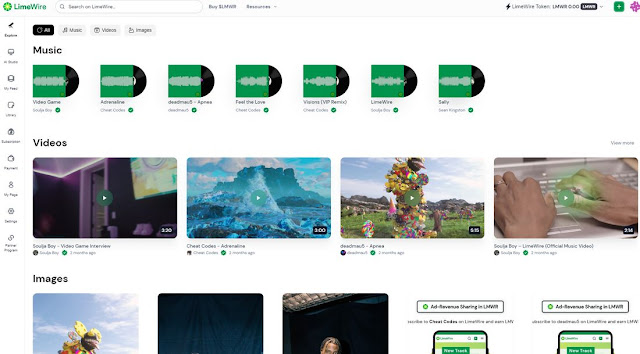The top internet scams to be aware of in 2025 (so far)


If you're concerned about scams in 2025, start by monitoring your texts.
Of course, scams are everywhere because the internet has made it so easy for bad actors to do bad things. But, quite notably, the year in scams (so far) has largely been defined by text-based scams. You've likely heard about, or even received, these scams: The E-ZPass scam, the DMV scam, and the job offer scam, to name a few. And sadly, romance scams and malware trickery still abound.
Here are the big scams you need to be aware of thus far in 2025.
The E-ZPass scam text
The E-ZPass scam texts — or scams involving other similar toll services — have seemingly been the most prevalent scam in 2025. We here at Mashable initially covered the story in January and updated with readers on the scammers' latest tactics and targets in May.
The TL;DR is that scammers send a text falsely claiming you have unpaid tolls, often creating a sense of urgency by threatening to suspend your license or enact some other severe punishment. Oftentimes, the text includes a link and, to be very clear: Do Not Click Any Links (or copy-paste a broken URL into another browser).
If you're curious about the scam texts, they typically looking something like the examples embedded below and are often sent from random phone numbers or email addresses.
This Tweet is currently unavailable. It might be loading or has been removed.
This Tweet is currently unavailable. It might be loading or has been removed.
This Tweet is currently unavailable. It might be loading or has been removed.
In general, it's best to not engage with scams at all. That means do not click links, do not respond to the text, or do not start a chat on some other messaging service. If you have any concerns about an outstanding toll bill, the Federal Trade Commission recommends contacting your local agency directly. It's worth noting that the tolling agencies will not send a bill via text and will not threaten to suspend your license. If you get a scam E-ZPass text, you should just delete it and report it as junk, which is an option for most phones.
DMV scams
Another common scam in 2025 is the DMV text scam. It's effectively a close cousin to the E-ZPass scams described above.
The text itself is a near copy-paste from the E-ZPass scam. DMV offices in states like California, Florida, and New York issued warnings that scammers would spam people with texts claiming to be from the DMV, falsely saying the driver had unpaid tickets and their driver's license was in jeopardy. These are fake and should be treated exactly the same as the E-ZPass tolls.
This Tweet is currently unavailable. It might be loading or has been removed.
Job offer scams
A relatively recent scam that's become more popular involves fake job offers, often from the popular job site Indeed. As we covered at Mashable, the scammers send a text saying the receiver has been offered a job, often claiming to be an employer on Indeed or the company Indeed itself.
The offer is fake. Instead, the bad actors often try to get folks to click a bad link or strike up a conversation on a platform like WhatsApp or Telegram. If you receive one of these texts, do not respond or converse with the scammers. Obviously, do not send any personal information. Indeed also recommends blocking the number and reporting the issue to the Federal Trade Commission (FTC).
This Tweet is currently unavailable. It might be loading or has been removed.
Joann Fabric scams
While lots of scams this year relied on text messages, Facebook still had its fair share of issues. The FTC had to issue a consumer warning, for instance, about fake Joann Fabric ads on platforms like Facebook and Pinterest that directed folks to fake websites promising amazing, going-out-of-business deals. Joann is going out of business, but all the sales, the FTC noted, were in person and not online. The scam seemed to be targeting shoppers who weren't experienced with common online pitfalls.
This Tweet is currently unavailable. It might be loading or has been removed.
Wrong number scams
The classic wrong number scams made a resurgence in 2025, thanks to artificial intelligence. AI has allowed scammers to more easily carry on conversations with people, earning their trust over time in order to steal from them. Sure, the scam might begin with a wrong number, but the idea is to make the person feel like they know you — then they find a way to take your money.
Wrote Mashable's Chance Townsend about stopping these scammers:
"The simplest and most effective way to protect yourself? Don’t respond. If a text pops up from 'Emily from the gym' or 'Daniel from the yacht club' and you have no idea who that is, ignore it. If the number’s from an unfamiliar area code or a region you’ve never set foot in — ignore it. That’s it. No need to engage, correct them, or play along. Just block the number and move on."
Fake IRS scams
As Mashable's Chase DiBenedetto covered in detail, scammers have increasingly fooled folks by posing as IRS agents chasing down taxes. Nearly one-quarter of Americans have been the victim, or know someone who was a victim, of a tax scam, according to a 2025 survey by McAfee.
How scammers carry out the scheme varies, but typically speaking they approach victims claiming they owe unpaid taxes. Before victims have the time to think it through, they pay up. It's important to know that the IRS conducts such business only through certified mail. So if you get a call or text about unpaid taxes, it is by definition a scam.
"Pig butchering" crypto and romance scams
Excuse the, well, graphic name, but a common 2025 scam has been labeled "pig butchering." The idea is the scammers get close to people in order to "fatten them up" and take them for all they're worth. The Secret Service warned that these scams often prey on people by catfishing them into a romantic relationship then taking their money via crypto schemes., which makes this a variation on a classic romance scam.
The Secret Service wrote: "Pig butchering scams involve fraudsters gaining the trust of victims, oftentimes via a fictitious romantic relationship, and duping them into making investments into fake cryptocurrency projects. These schemes typically begin with a victim meeting someone on an online dating website"
This Tweet is currently unavailable. It might be loading or has been removed.
Tech support scams
We all struggle with tech at times — it can feel so frustrating when something you need to work just won't. Or we fret over losing access to our devices, or that people might steal our money over the internet. Scammers are preying on that fact. They've begun posing as some kind of tech or security support in order to convince people — often elderly folks with savings — to give up their money.
These scams come in a number of forms. The FTC warned, for instance, that some scammers use aggressive pop-ups claiming to be security alerts from Microsoft, Apple, or Geek Squad. They claim users have an urgent problem that they can "fix" for a cost. In a variation of this scam, people will receive an email notification that their Geek Squad account is about to renew for an exorbitant price. When users call "Geek Squad" to cancel, the scammers steal their financial information.
This Tweet is currently unavailable. It might be loading or has been removed.
Other cases have shown elderly folks being told to deposit money into crypto accounts to "fix" an urgent computer issue. A woman in Michigan, for instance, was conned out of $30,000 by bad actors pretending to be an internet security company. Police in Texas prevented another scam in progress where a woman was all set to fork over $20,000 after a scammer contacted her about a "virus" on her computer. These scams, like many others, rely on urgency and pressing people to act quickly. It's important to always take time to assess the situation and be especially wary of any payments that require using crypto or gift cards.
Clearly, 2025 has already been littered with scams. As always, stay vigilant throughout the next six months.
Have a story to share about a scam or security breach that impacted you? Tell us about it. Email [email protected] with the subject line "Safety Net" or use this form. Someone from Mashable will get in touch.












































